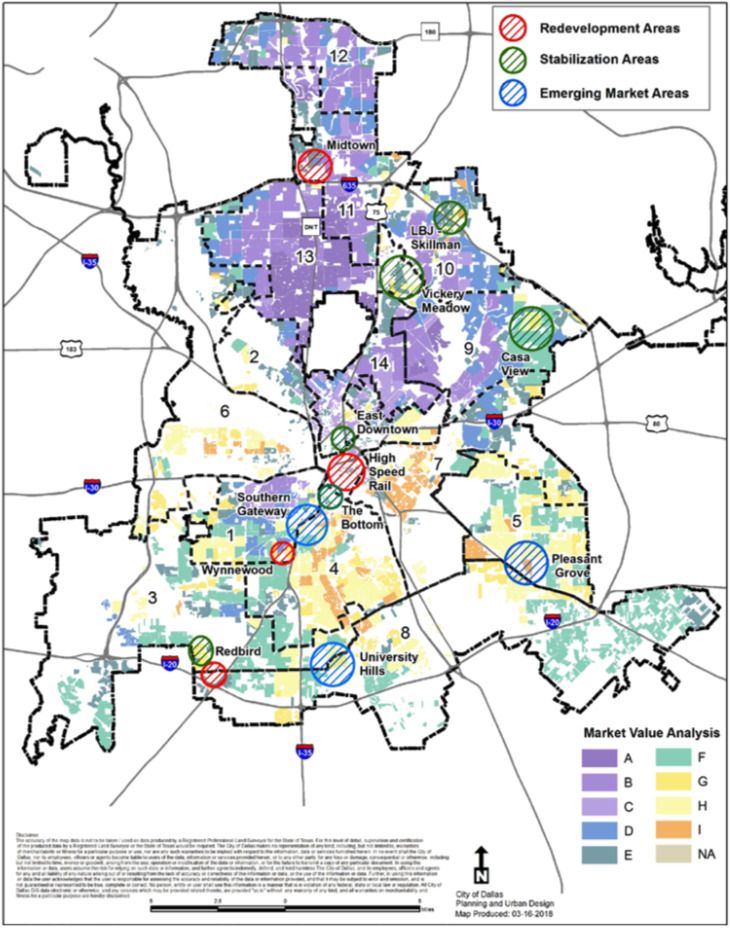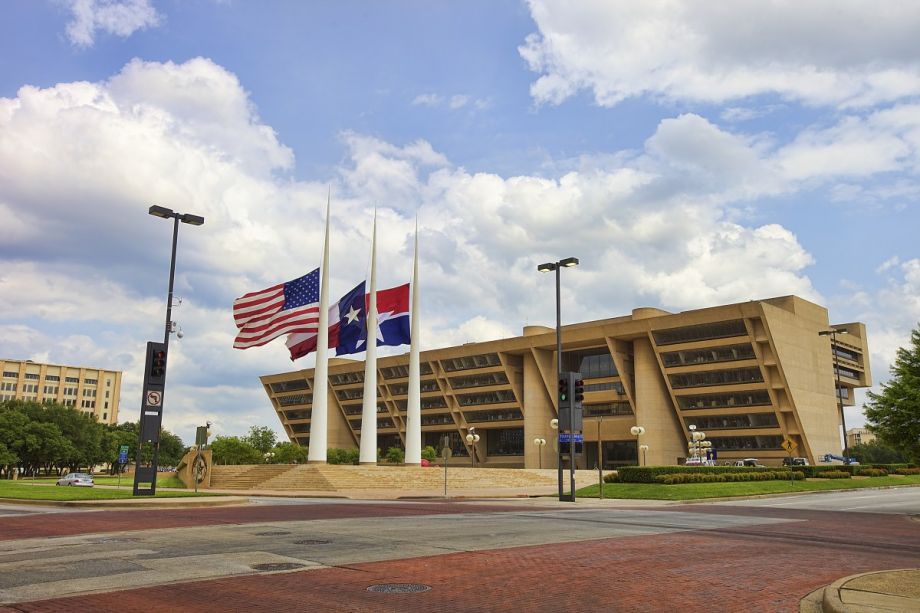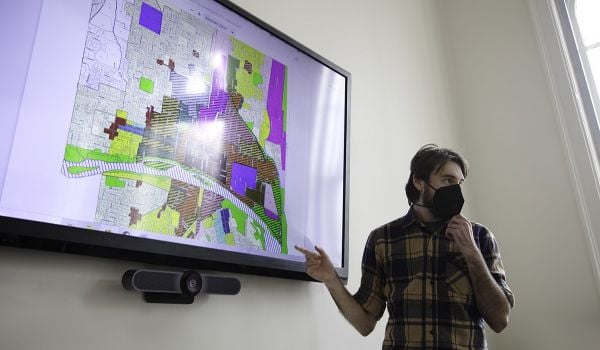Early next month, the Dallas city council is expected to vote on a new housing plan that aims to produce 20,000 homes for low- and moderate-income families over the next three years. The plan is intended not only to overcome a shortage of affordable housing in the city, but to chip away at patterns of racial and economic segregation that have developed in the city over the course of decades.
For Dallas, a new approach to housing has been a long time coming, officials say. In 2014, the city entered into a settlement agreement with the Department of Housing and Urban Development related to complaints that it had distributed federal housing money in ways that reinforced segregation, rather than working against it, as required by the Fair Housing Act. The following year, the U.S. Supreme Court ruled, in a case brought against the Texas Department of Housing and Community Affairs by a Dallas nonprofit group, that policies which create disparate outcomes in housing violate the Fair Housing Act, even if they aren’t driven by intentional discrimination.
“The idea of the Fair Housing Act is to give people access to more upwardly mobile communities,” says Raquel Favela, chief of economic development and neighborhood services for the city. “And that’s exactly what this plan seeks to do.”
The city’s new plan, which was unveiled in March, is the work of a new cohort of housing officials brought on by city manager T.C. Broadnax last year, including Favela. It’s based on a deep dive into the city’s housing data called a Market Value Analysis, as Next City previously reported.
The proposal recommends different types of investments in three target areas identified using the Market Value Analysis: Stabilization Areas, where the housing market is gaining strength and there’s a risk of displacement; Redevelopment Areas, where projects with potential to transform a market are already underway; and Emerging Market Areas, where there is a very weak housing market and problems with public safety and code enforcement. It calls for a mix of public and private investment to help fund 20,000 new homes over the next three years, with slightly more than half of the homes reserved for homeownership and the rest for rental. New affordable housing production would be focused in areas with stronger markets, through zoning for increased density and loans to fill financing gaps.

Map showing the Dallas housing plan target areas layered with the Market Value Analysis areas. (Credit: City of Dallas Department of Housing and Neighborhood Revitalization)
The plan seeks to build on market strengths by helping residents access homes built for market-rate tenancy, rather than subsidizing developers to build low-income housing in low-income areas. In the “emerging market” areas, the city would focus on strengthening neighborhood groups and investing in infrastructure and code enforcement. The idea is to make stronger markets more accessible for low-income residents, rather than providing low-income housing only in the most distressed areas.
“It doesn’t make sense for us to build housing in areas where those things are a big concern,” Favela says of the emerging market areas. “It really isn’t a housing choice if people feel like that’s the only option they have.”
But that aspect of the plan doesn’t sit right with some groups that have been involved in providing affordable housing in Dallas for decades. After the plan was released, representatives of the city’s Community Housing Development Organizations (CHDOs, pronounced “chodos”) complained that they were being left behind by the plan—and so were the parts of the city that were struggling the most.
Annie Evans, executive director of SouthFair Community Development Corporation, a CHDO that works in South Dallas, says groups like hers have been working to provide housing in areas where private developers won’t build for years. The CHDOs are committed to improving the city’s most-distressed areas, Evans says. And she questions the housing plan’s emphasis on areas of market strength.
“Why would you wait 3-5 years to address these type of areas when the need is now?” Evans says. “The CHDOs, we’re working in these areas now.”
Together, the CHDOs were seeking an investment of $50 million to support their low-income housing development work, according to a report in The Dallas Morning News. (Representatives of other CHDOs did not respond to requests for an interview.)
But the CHDOs have been too slow to produce housing, and haven’t shown the financial or organizational capacity to complete projects on a reliable timeline, Favela says. Their opposition to the plan wasn’t a surprise to her.
“The practices that have been in place in Dallas have been in place a long time,” says Favela. “And the only change that’s welcomed is the change that we create, so by virtue of this not being a change that they were initiating, I expected that they would not embrace it.”
Besides, the whole point of the housing plan is to produce affordable housing in a more integrated way than the city has in the past. It’s more effective for the city to do that by serving low-income residents in neighborhoods with stronger markets than it is to try to build mixed-income housing in areas with weak markets, Favela says. Nothing in the plan prevents the city’s CHDOs from continuing to work in their selected areas, but providing incentives to target low-income housing in low-income neighborhoods is the very practice that runs afoul of federal policy, she says.
“The plan is about providing housing choice and mobility, which is at the crux of the Fair Housing Act,” Favela says. “This is about providing mobility for low-to-moderate income families.”
Favela says she plans to present the plan to a city council committee again on May 2, incorporating public comments that her office has gathered over the last few weeks. The council is expected to vote on the plan on May 9. So far, Favela says she’s met one-on-one with all but two city councilmembers to discuss the housing plan. She expects the majority will support it.
Some councilmembers, like Tennell Atkins, who represents the 8th District in South Dallas, have been expressed doubt about approving the plan, at least in its current form, according to news reports. (Atkins’ office did not respond to requests for an interview.) But other councilmembers are openly supportive of the new approach.
“Our housing department and our housing policy has just been such a disaster,” says Lee Kleinman, the 11th District councilman who describes himself as a “fiscal conservative” on Twitter. “I just don’t think that anybody wants to keep doing what we’ve been doing.”

Jared Brey is Next City's housing correspondent, based in Philadelphia. He is a former staff writer at Philadelphia magazine and PlanPhilly, and his work has appeared in Columbia Journalism Review, Landscape Architecture Magazine, U.S. News & World Report, Philadelphia Weekly, and other publications.
Follow Jared .(JavaScript must be enabled to view this email address)
















